When possible, Danes prefer local, sustainably produced food. Add Copenhagen's luxury restaurants to that, and you have the ideal breeding ground for a company like Funga Farm: a small-scale urban farm that grows organic, fresh, high-quality specialty mushrooms and supplies them exclusively to about 20 chefs in Denmark's capital.
Funga Farm's cultivation methods are designed to be as sustainable as possible. Not only that: as meat substitutes, mushrooms, themselves, are a genuinely eco-friendly product. Mushroom farming has a far lower carbon footprint than resource-consuming meat production. This company's website explains that for water alone, it uses a fraction (barely a liter/kg) of that used in livestock farming.
Funga Farm does not grow standard mushrooms, only those with unusual names like Scalycap mushrooms (Pholiota adiposa), Lion's Mane (Hericium erinaceus), Hen-of-the-wood (Grifola frondosa), Poplar mushrooms, or Velvet Pioppini (Cyclocybe aegerita), and Velvet Shank (Flammulina velutipes), among others. "But most of our production currently consists of common oyster mushrooms (Pleurotus ostreatus)," begins Thomas Kyle Cometta (goes by Kyle), Funga Farm's founder and CEO.
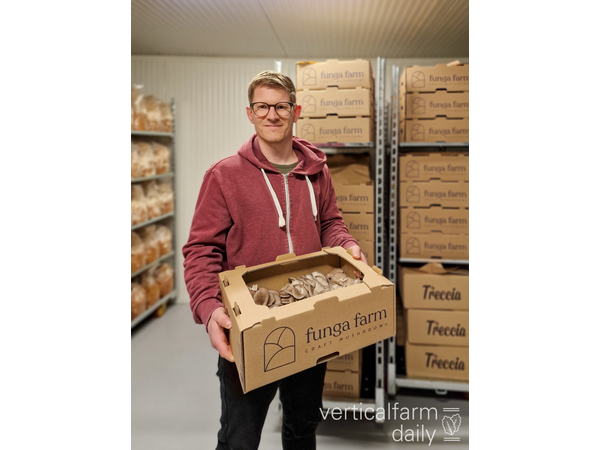
Thomas Kyle Cometta
In-house cloning
"We like experimenting and coming up with truly exclusive varieties. For example, we've managed to consistently produce Coral Tooth fungus (Hericium coralloides). It's similar to the Lion's Mane, which is on the red list of endangered species and shouldn't be picked. We found it in a forest not far from here - we prefer cultivating local mushrooms - and took a tiny bit of mycelium. We got started with that. We put that in a petri dish and grew and cleaned it. Now we can cultivate this fungus on a large scale. Our method lets us clone any fungus using only a minute amount of mycelium, and we can multiply it almost indefinitely."
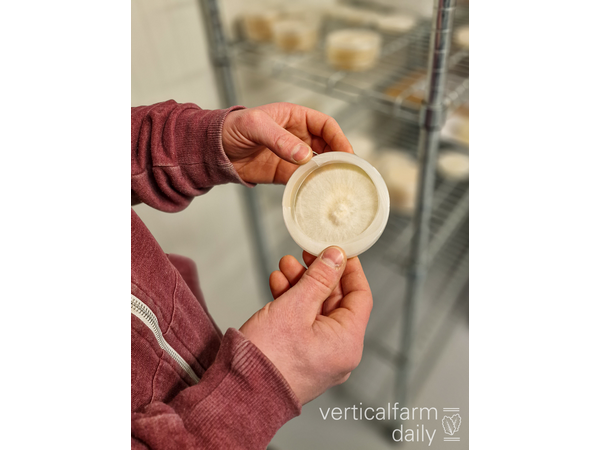
Funga Farm's cloning method
Waiting list of clients
Though Funga Farm has a constant supply, it does not meet demand. "Our production's still limited. Some restaurants are on the waiting list, and we won't serve them as customers until we're sure we can meet their weekly demand. Not all the chefs work with us on an annual basis; some only put mushrooms on their menu for a few months of the year. If that fits into our cultivation schedule - sometimes it takes a bit of figuring out - it's not a problem for us," says Kyle.
He always invites new clients to visit the farm, which is located on an industrial site in Brøndby, just outside Copenhagen. He shows the chefs the entire cultivation process, with all its possibilities as well as limitations. "For instance, they know they can't suddenly place an order for the next day. That's impossible. If we have the sawdust block with the mycelium in the cold room, it takes two weeks to grow. From spore to finished product, we need a little over a month. Customers know this and inform us of their menu changes well in advance. Still, we always grow a little more than ordered in case someone needs slightly more of a specific product at a certain time."
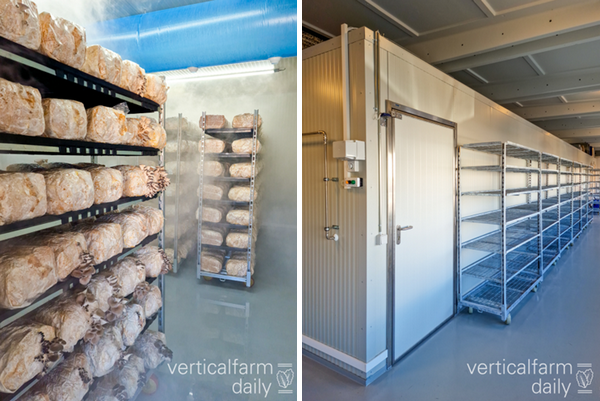
The new facility pictured
Minimal food waste
While other suppliers have a 70% usable product, Funga Farm easily achieves 95%. "That's because of the product's quality which has to do with growing conditions and genetics. Our mushrooms are extremely fresh, and there's hardly any wastage. They're more expensive, but throwing away less immediately pays off. Inferior quality mushrooms often have long, thin, hard stems. You can't use those in cooking," Kyle explains.
This Danish mushroom farm controls all aspects of the cultivation process, from propagating and growing the mycelium to substrate production, cultivation, and distribution. "That does involve some risk because you're juggling many balls at once. However, we have mushroom varieties no other farm has, even common ones. It takes time and money to develop breeding techniques and cultivation methods, but it's already paying off, and, thanks to our unique position, future yields will be exponential."
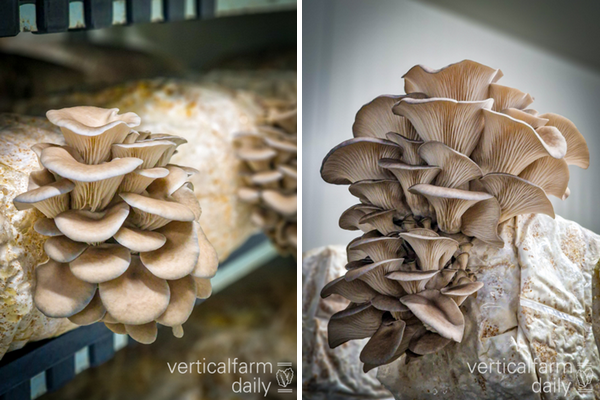
The importance of hygiene
Funga Farm has none of the widespread mushroom recalls of the USA. "We nor our European colleagues have to deal with those that often. There's, undoubtedly, a clear cultural difference between the US and the EU. Take the Velvet Shank. In the wild, they have short stems and wide caps, but in stores, they're more likely to have long stems and narrow caps. That's because, when you grow them, there's little oxygen involved and minimal air circulation. But a relatively warm, highly humid environment with little or no air circulation is perfect for bacteria such as listeria. Less hygienic farms are definitely at more risk," explains Kyle.
Funga Farm is part of a network of mid-sized mushroom farms that share issues, solutions, and innovations primarily in the USA but also in Europe. "We learn more by working together than going it alone. But that's also how I know that farms in the US often spray their mushrooms with chlorine to kill the bacteria. Why not, they say, when you also ingest buckets of chlorine when you go swimming? That's illegal in the EU. Plus, I don't want to treat the symptom; I want to address the cause. Is the humidifier dirty? Did someone introduce contaminants through their hands, shoes, or clothes?"
Yet, according to Kyle, since mushrooms are living organisms, they will always contain traces of bacteria. "It's about natural balance; the bacteria shouldn't take over and affect the mushroom's health. Infections often remain undetected until they reach critical mass. Then, it's actually too late because you can no longer control the spread. It's all about hygiene and health. Bacteria attack us humans all the time, too, but if you're healthy, your immune system can fight that off. It's the same with mushrooms," he says.
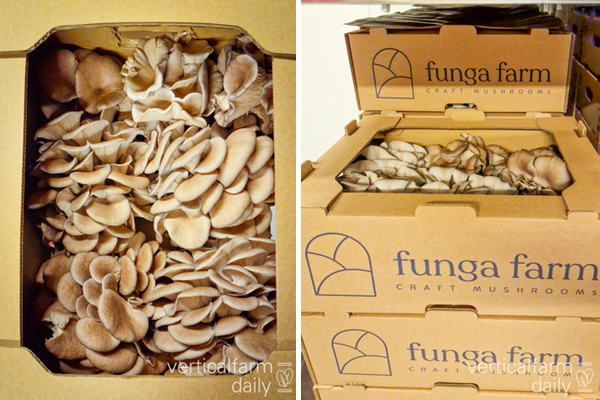 Oyster mushrooms ready for take-off to Copenhagen
Oyster mushrooms ready for take-off to Copenhagen
Scaling up
Funga Farm currently harvests around 300 kg of mushrooms per month from a 110m2 cultivation area but hopes to up that to 750 kilos by the end of 2023.
"We have 20 buyers to whom we deliver directly. We lose no money to brokers and use our own means of transport, including bicycles. Nevertheless, in the future, we hope to scale up production and expand our client base to include larger restaurants and greengrocers. But the production process has to be cheaper. We want to concentrate on propagation, substrate production, and incubation at the current location, while cultivation can happen at several sites close to the customers, including in cities other than Copenhagen. That reduces transport costs, plus buyers get a super-fresh product."
Kyle envisions that expansion taking on another dimension. "It would be nice if, besides the fresh product for restaurants and possibly other customers, we could offer value-added products too. I'm thinking of medicinal mushroom products, functional coffee or tea mixes, food supplements, dried mushrooms, potato chips, jerky, sauces, etc. We'd then be less dependent on the fresh sector's fluctuating market conditions. Though, that will remain our core business, not least because cooperation with renowned chefs boosts our image," he concludes.
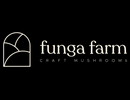 For more information:
For more information:
Thomas Kyle Cometta, Founder and CEO
Funga Farm
530 Priorparken
2605, Brøndby, DK
Tel.: +45 939 50 025
Email: hello@fungafarm.com
www.fungafarm.com
